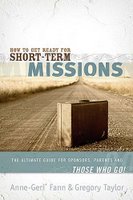I've seen the horrible and dramatic news stories from the areas and people affected by Hurricane Katrina. I've listened to several NPR news accounts of what's happening to so many lives affected and how polls suggest that Americans are "depressed" by these events. Last night I watched President Bush give a great and needed speech about the government's role to those affected. This is truly one of the worst national disasters we've experienced and I am proud of how we are now responding. Yet, through all of this coverage and now a big effort to rebuild there are questions that keep haunting me.
What's the difference between those affected by Katrina and the 2.8 billion people (those in the world that live on less than $2 a day) that struggle in poverty every day? Are we saying that Americans are more important than Africans? To me, most Africans are living like those New Orleans residents stranded on their roofs with no water or food and no one to come help them. But instead of just a couple of days, they stay there for years, decades, even centuries. What's the difference here? Can anyone tell me?
I love the fact that we as a country are responding so well to Katrina victims. I hate the fact that we just ignore Africans who are needlessly dying every day just because of their poverty, who they are and where they live. I hate the fact that for some reason we believe Americans are created better than Africans and so many poor in the developing world.
Below is an article by the president of World Vision who is taking the words right out of my mouth.
Katrina and the uncomfortable truthby Richard E. Stearns
Perhaps the most disturbing comment I have heard over the pastfew weeks, as I have been glued to the 24/7 Katrina mediacoverage, came from a man who lost his home in New Orleans and was living in a shelter.
It came in response to the controversial use of the word "refugee" to describe the thousands of people displaced by Hurricane Katrina. He said:"'Refugee?' I'm not some poor African with flies on his face -we are not refugees, we're American citizens!"There is a profound and uncomfortable truth captured in this man's angry statement. The truth that all men are not created equal; that the 2.8 billion poor who live on less than $2 a dayare not valued with equal importance; that their suffering is less important; that their pain can be tolerated; that their lives are somehow less significant; and that they don't have a right to life, liberty, and the pursuit of happiness in the same way the rest of us do.
Hurricane Katrina exposed this uncomfortable double standard to us. It is a double standard that suggests that we don't have a moral responsibility to respond to human suffering if it occurs in a different hemisphere and it is a double standard that showed us that the poor - even in America - are the most vulnerable of our citizens. Now our hearts have gone out to our fellow citizens these past two weeks. Their pain and suffering are real and as a nation we have come together in countless ways to respond to our neighbors in need. World Vision is responding to those needs just as we did after9/11.
I am here today in New York to urge the world leaders meeting at the United Nations this week to not forget the world's 2.8 billion poor people. They are asking us to look upon them with the same concern and sense of moral responsibility that we have demonstrated toward our own citizens. While in the past two weeks we have been critical of the slow response to aid all the victims of Hurricane Katrina, for the poorest of the poor, there is often no response. While we have pointed to the failure of FEMA - for the poorest of the poor,there is no FEMA to fail them. And while $62 billion has been set aside for relief and rebuilding along the Gulf Coast - the money needed to help the poorest of the poor cannot be found.
Dear friends, let us pray this week that 2005 will be the year when the world opened its eyes to the poor; that 2005 will be the year of their emancipation proclamation - because the world finally decided to eliminate extreme poverty in this generation. And let us pray that God will continue to bless our great nation because we have chosen to be a blessing to the word's poor.
Richard E. Stearns is the president of World Vision UnitedStates. This article is adapted from a speech made as part of an interfaith delegation of nearly 20 American religious leaders calling on the Bush Administration to join other nations in committing to end global poverty and fully embrace theMillennium Development Goals (MDGs). Organized in part by Sojourners, a memorial service, press conference, and afternoon of prophetic preaching on the MDGs marked the first day of athree-day vigil of prayer and fasting in Dag Hammarskjöld Plazain New York City this week.+ Read more about the vigil at the World Summit:http://go.sojo.net/ct/h1AY2u91iXBL/



